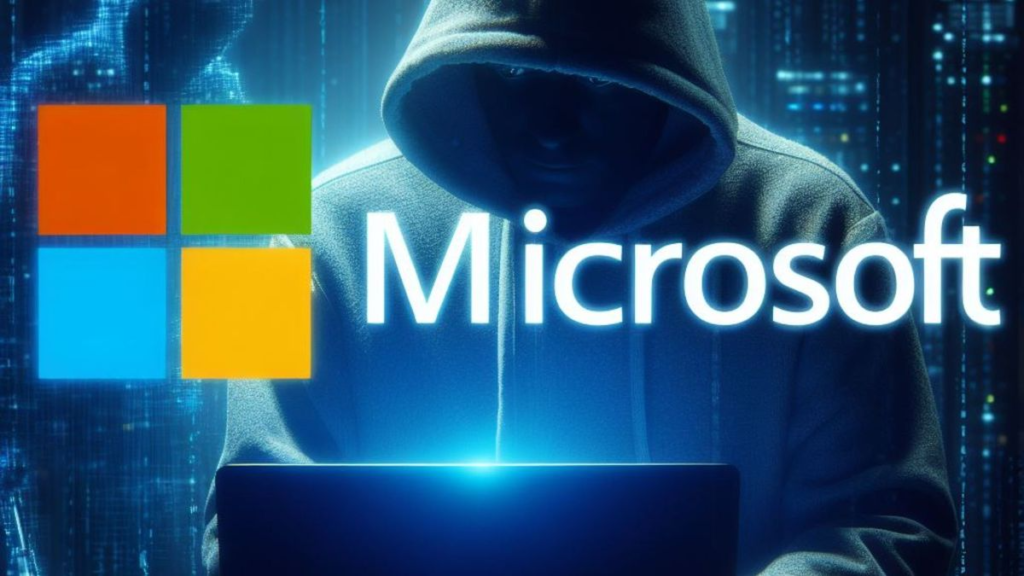Within the constantly changing sector of cybersecurity, where cyberwarfare takes place on an invisible front line, the latest hacking attack on Microsoft by hackers looking to steal personal data has opened Pandora’s box of psychological difficulties. Examining the reasons for such a bold move in this high-stakes game of cat and mouse between hackers and cybersecurity specialists allows us to delve into the dark corners of the human brain. What drives people to break the defenses of a software behemoth such as Microsoft in pursuit of their digital dossier?
It’s clear from looking into the world of hackers that they do things that go beyond the black-and-white worlds of code and encryption. The hack of Microsoft, a symbol of technical might, suggests a deep need for communication. Hackers may be communicating a need for recognition and want to be heard in a world ruled by corporate behemoths by breaking into one of the biggest companies in the IT sector. This action goes beyond simple data theft and becomes a kind of symbolic expression and communication that forces us to contemplate the reasons behind the actions of individuals who venture into the shadows of the internet. By delving into the relationship between digital subversion and Freudian theory, we may get a more sophisticated comprehension of the hacker’s psychology, uncovering motivations that beyond the code and algorithms that characterize our online presence.
1. Microsoft Hackers’ Subconscious Minds:
When we explore the complex inner workings of hackers’ unconscious minds, we enter a world where reasons are frequently a mystery. The layers of the unconscious are more fascinating when one considers the background of hackers breaking into Microsoft to obtain personal data. A possible line of inquiry is the hackers’ innate interest in their own online identities. The act of hacking may be an attempt to expose the alleged secrets and rulings held by a behemoth of technology such as Microsoft, perhaps to regain some kind of control over the story of their online persona.
2. The Need for Approval and the Ego:
The Freudian idea of the ego can provide valuable insights into the motives of hackers who penetrate the tough defenses of Microsoft and other companies. This is especially relevant in the complex realm of hacking, where individuals work in the shadows of obscurity. The primary preoccupation of the ego, which is seen as the conscious aspect of the mind, is gratifying desires while adhering to social rules. However, the ego plays a special role in the hacker community, where unusual abilities are frequently a source of recognition.
3. Sublimation of hostility:
By exploring Freud’s idea of sublimation, one may see that hacking is a complex psychological process that involves the sublimation of hostility. According to Freud, people are born with an urge for aggression, but society puts limits on how these impulses may be expressed. For hackers, whose expertise is typically in complex problem-solving and code, the cybersecurity industry provides an unorthodox outlet for their violent tendencies. In this sense, hacking may be seen as a veiled kind of aggressiveness, the conversion of innate urges into a talent that is valued in society.
4. The Pleasure Principle:
Freud’s explanation of the Pleasure Principle offers an engrossing prism through which to view the incentives of hackers who are breaking into powerful cybersecurity defenses. When it comes to cyberattacks, the satisfaction that comes from figuring out complex security protocols is a major factor in determining the hacker’s mentality. It’s a digital victory that’s exhilarating and may be compared to piecing together an extraordinarily intricate puzzle. Hackers’ exhilaration in breaking past Microsoft’s security is more than just a sense of accomplishment—it’s an example of the pleasure principle, which states that the need for intellectual satisfaction trumps any potential negative effects.
5. Unconscious Confessions and the Need for Conversation:
When discussing unconscious confessions in the context of hacking, it’s important to keep in mind that breaking into a large company like Microsoft might be interpreted as a symbolic declaration. Hackers may be trying to compel a discussion by breaking into the digital strongholds of a major technology company, although in an unusual way. This action can be interpreted as an implied request for recognition from a major player in the IT industry. The hack turns into an atypical conversation in which the hacker, concealed behind computer code, cries out to be acknowledged and comprehended.
Conclusion:
The hack of a major giant like Microsoft by hackers looking for information the firm has on them is a fascinating mystery that begs to be examined through the prism of Freudian psychoanalysis in the constantly changing field of cybersecurity. Although Freud’s theories cannot fully account for the complex motivations underlying these kinds of behaviors, they do provide an insightful framework for examining the intricate interactions between human desires, unconscious drives, and the unusual routes people may choose in their search for acceptance.
Also Read: Five Indices of a Mavic 3 Drone Expert
